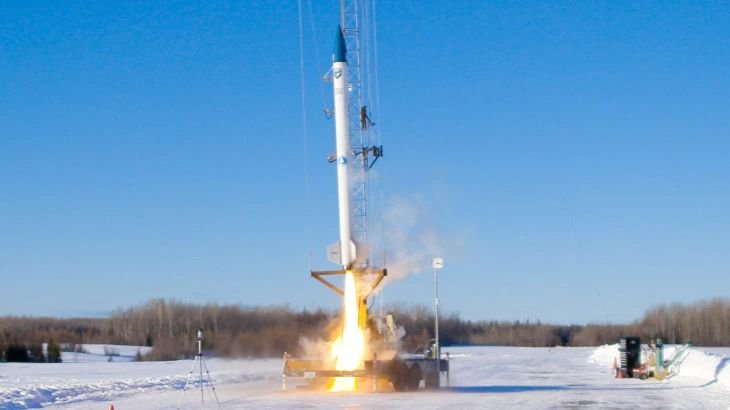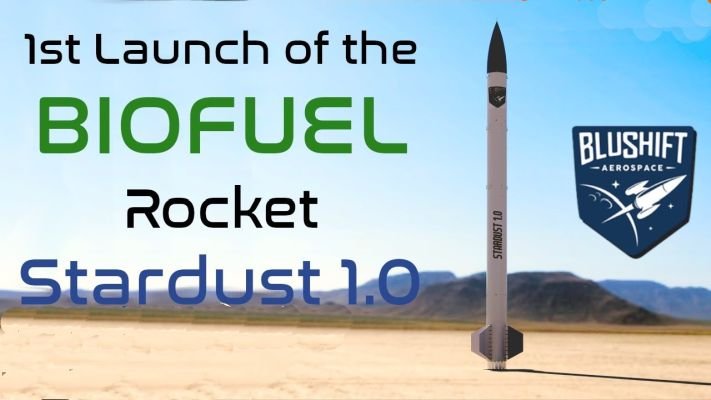The space startup bluShift Aerospace successfully launched a low-flying rocket on Sunday using a kind of fuel that the company says can be grown on a farm.
The Brunswick-based startup launched its first rocket prototype, called Stardust 1.0, despite freezing temperatures and two false starts.

Stardust 1.0 is a small sounding rocket powered by a “bio-derived” solid fuel to act as as a testbed for future bluShift rockets capable of launching tiny nanosatellites.
It stands 20 feet tall (6 meters) and can carry 17 lbs. (8 kilograms) of payload.

The rocket didn’t reach space (or even a mile up), but marked a major milestone for a company aiming to launch bespoke missions tailored for tiny satellites.
The company plans to become the first private aerospace company to launch a single-engine biofuel-powered rocket, though there’s a long way to go in order to reach that point from its mile-high test.

However, this test is still a solid showing for the prospects of environmentally-friendlier biofuel.
The company claims that its proprietary biofuel is non-toxic, carbon-neutral, and “can be cheaply sourced from farms across America.”

Future tests will show whether the fuel — and the rockets it propels — are ready to make a dent in conventional rocket fuels. But if it works out, the more-sustainable rocket fuel could go a long way to helping clean up an environmentally-destructive industry.
Reference- Space.com, Futurism, BBC, bluShift website & PR






